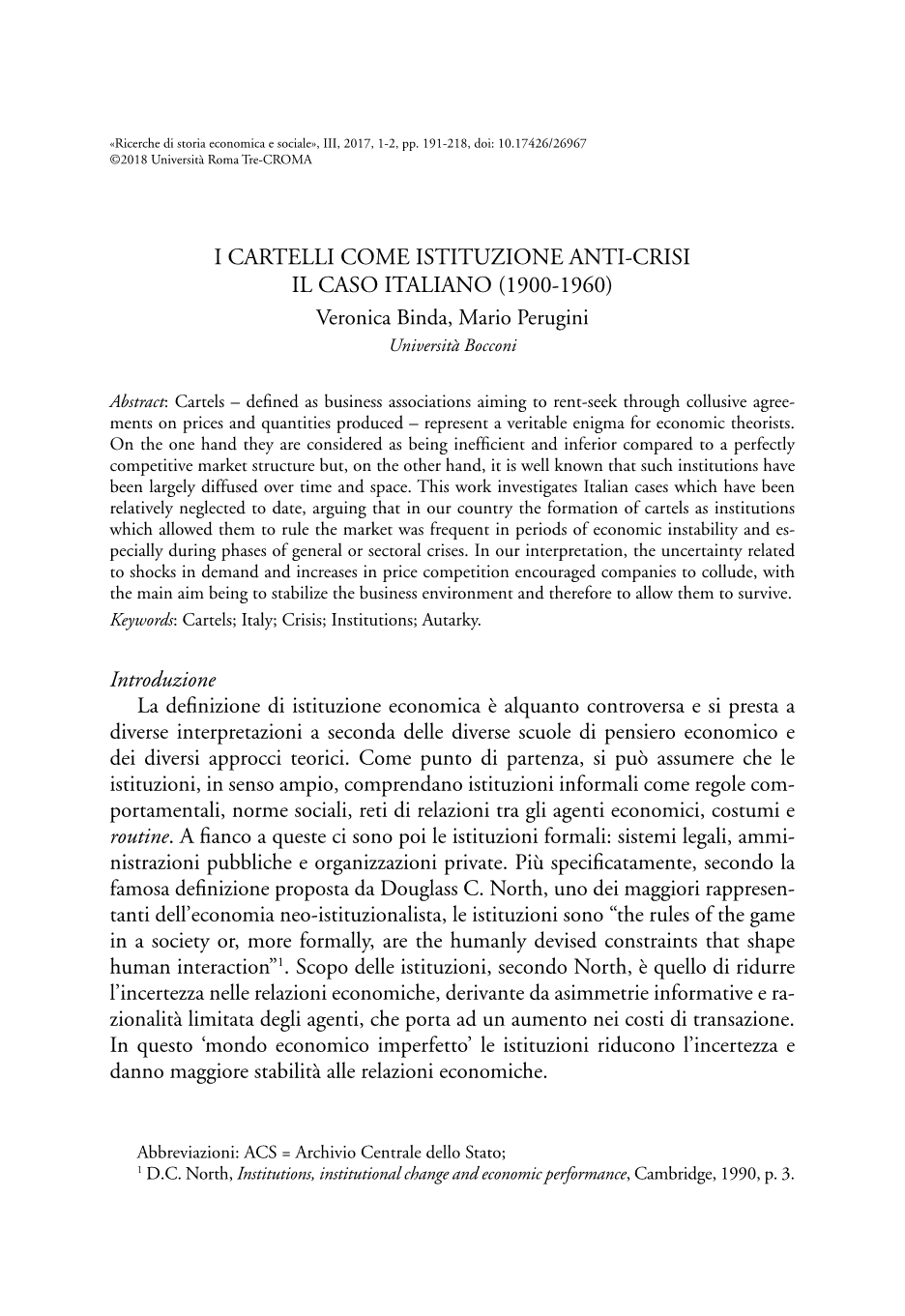Indice degli autori
RISES » 2017/1-2 » Istituzioni e cambiamento economico
ISSN 2499-2321
Binda Veronica - Perugini Mario
I cartelli come istituzione anti-crisi. Il caso italiano (1900-1960)
pp.191-218, DOI 10.17426/26967
Articoli
Abstract: Cartels – defined as business associations aiming to rent-seek through collusive agreements on prices and quantities produced – produced – represent a veritable enigma for economic theorist. On the one hand they are considered as being inefficient and inferior compared to a perfectly competitive market structure but, on the other hand, it is well known that such institutions have been largely diffused over time and space. This work investigates Italian cases which have been relatively neglected to date, arguing that in our country the formation of cartels as institutions which allowed them to rule the market was frequent in periods of economic instability and especially during phases of general or sectoral crises. In our interpretation, the uncertainty related to shock in demand and creases in price competition encouraged companies to collude, with the main aim being to stabilize the business environment and therefore to allow them to survive.
Keywords: Cartels; Italy; Crisis; Institutions; Autarky

Referenze
- download: n.d.
- Url: http://archivio.centroricercheroma.it/?contenuto=indice-degli-autori-rises&idarticolo=1582
- DOI: 10.17426/26967
- citazione: V. Binda, M. Perugini, I cartelli come istituzione anti-crisi. Il caso italiano (1900-1960), "RiSES", III/1-2, pp.191-218, DOI: 10.17426/26967

